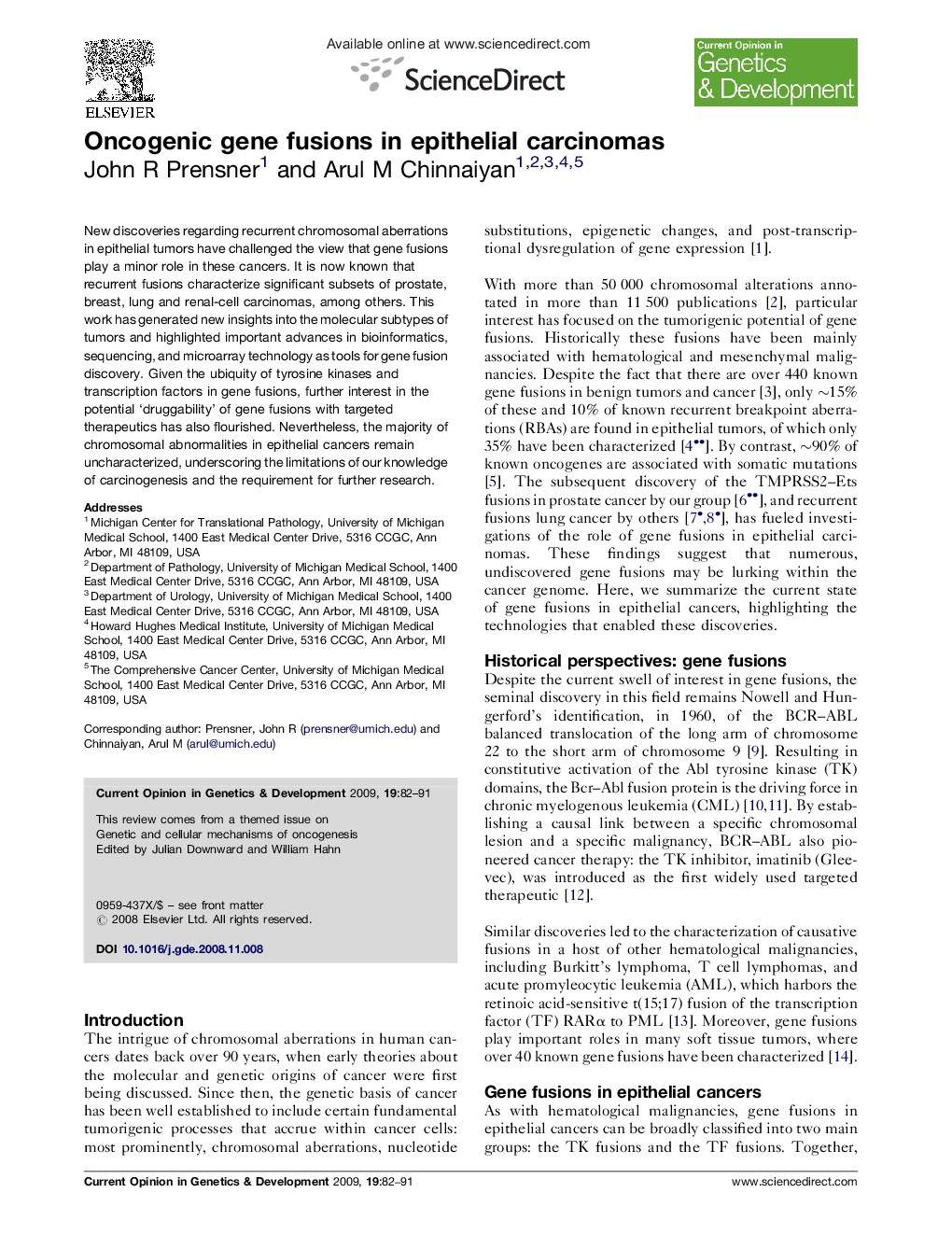| Article ID | Journal | Published Year | Pages | File Type |
|---|---|---|---|---|
| 2785217 | Current Opinion in Genetics & Development | 2009 | 10 Pages |
New discoveries regarding recurrent chromosomal aberrations in epithelial tumors have challenged the view that gene fusions play a minor role in these cancers. It is now known that recurrent fusions characterize significant subsets of prostate, breast, lung and renal-cell carcinomas, among others. This work has generated new insights into the molecular subtypes of tumors and highlighted important advances in bioinformatics, sequencing, and microarray technology as tools for gene fusion discovery. Given the ubiquity of tyrosine kinases and transcription factors in gene fusions, further interest in the potential ‘druggability’ of gene fusions with targeted therapeutics has also flourished. Nevertheless, the majority of chromosomal abnormalities in epithelial cancers remain uncharacterized, underscoring the limitations of our knowledge of carcinogenesis and the requirement for further research.
